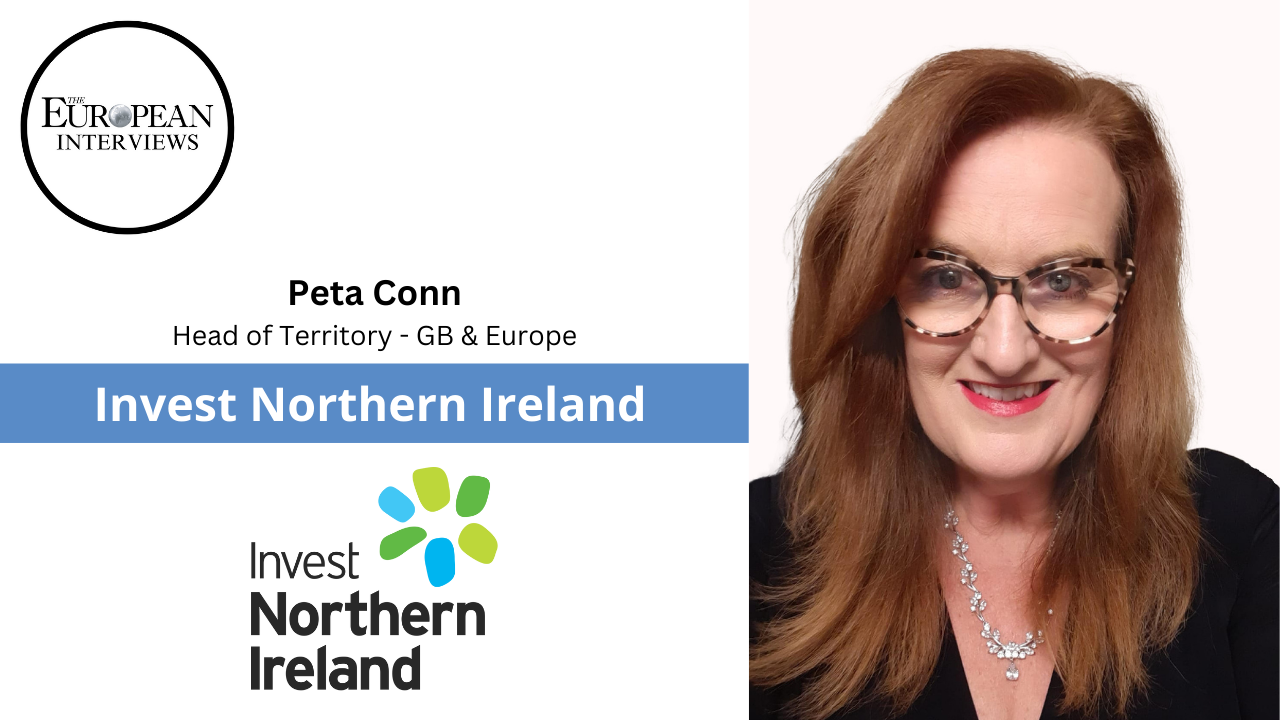Driving the future of sustainable investing

John E. Kaye
- Published
- Foreign Direct Investment, Home

Article by Leon Saunders Calvert, Head of Sustainable Investing & Fund Ratings at Refinitiv
Environmental, Social and Governance (ESG) based investing is entering the mainstream and it is attracting more and more capital, resource and focus. However, there is still much debate on what forms of ESG data and analytics are or will be most useful for the investment community.
To highlight the growth of sustainable investing we need only look at the loan market. Nearly $89bn in global green and sustainability-linked loan volume was announced during the first nine months of 2019 – a new record at the time1. And, in response to growing market demand for actionable sustainability linked financial data, the London Stock Exchange launched two initiatives in October 2019: the Green Economy Mark, and the Sustainable Bond Market.
But sustainable investing requires ESG data that we can all trust. High standards of corporate ESG reporting are crucial for stakeholder insight. This gives investment managers more confidence to integrate ESG into investment decisions because they can back up those investments by referring to hard data, or analytics based on this, the same way they would with traditional or fundamental research.
Reliable information
For Refinitiv ESG data is fundamental data, not alternative data, and is treated on a par with all other investment grade data to inform institutional decisions on allocation of capital.
Let’s take the asset managers who allocate capital. They look at which companies best meet the criteria for their ESG focus across thematic areas such as climate change (emission reduction, engagement in de/reforestation, carbon sequestration, etc) and other environmental issues such as resource use and waste management. They want to know if companies are supporting a culture of diversity, inclusion and equality of opportunity throughout the firm and understand human rights practices that are vitally important throughout a company’s labour force and supply chain.
But asset managers also want to use this data in ways which are not explicitly about socially responsible investing. They seek to manage risk associated with companies’ ability to transition to a low carbon economy and avoid becoming a “stranded asset”, a victim of disruption. Investors look to identify correlation and causality between diversity at board, management and employee level with long term company performance as a leading indicator of economic performance.
The investment bankers who raise capital want to be able to demonstrate that they are supporting investments in non-fossil fuel related energy production, i.e. renewables and nuclear. They want to provide guidance to their customers as to how they can best contribute to and measure against the UN’s Sustainable Development Goals through their business activities. They are interested in informing interest rate decisions and other terms and conditions on green/blue/sustainable bonds based on the issuer’s key performance indicators related to the use of the proceeds of the financing they seek.
To achieve these aims, we need investment grade data and analytics which support transparency in markets, auditability of data, as well as context and insight to inform capital-based decision making.
In-depth analysis
We believe that company disclosure and standards of reporting on these issues are critical for driving accurate investor information, public discourse, and regulatory guidance.
Today, at Refinitiv, we already include the aggregation of a massive dataset of transparent ESG metrics. The data is fully auditable back to the original source, with coverage of over 7,000 companies representing approximately 70% of global market capitalisation, with a transparent and open methodology on company scoring and clear visualisation of the company-level ESG footprint.
Furthermore, we will help drive a stronger relationship between long-term economic value and ESG data which requires analytics and a co-mingling of fund data and holdings data with ESG data.
It remains essential to continue to build out data coverage and support improved disclosure and we will be working on meeting these goals in 2020 and in turn helping the financial community better factor in risk and opportunity using ESG data.
Further information
1 source: Refinitiv LPC
RECENT ARTICLES
-
 Zanzibar’s tourism boom ‘exposes new investment opportunities beyond hotels’
Zanzibar’s tourism boom ‘exposes new investment opportunities beyond hotels’ -
 Residence and citizenship planning is reshaping global wealth strategies
Residence and citizenship planning is reshaping global wealth strategies -
 Building sovereign bridges by attracting global investors
Building sovereign bridges by attracting global investors -
 Bahrain cuts property investment threshold for golden residency
Bahrain cuts property investment threshold for golden residency -
 Where mobility meets opportunity: Malta’s strategic advantage for global investors and innovators
Where mobility meets opportunity: Malta’s strategic advantage for global investors and innovators -
 UK government sets up Women in Tech taskforce amid gender imbalance concerns
UK government sets up Women in Tech taskforce amid gender imbalance concerns -
 Malta introduces Nomad Heritage Card for remote professionals
Malta introduces Nomad Heritage Card for remote professionals -
 How free global cities could reshape the future of migration
How free global cities could reshape the future of migration -
 Dominican Republic positions itself as Caribbean hub for sustainable trade and investment
Dominican Republic positions itself as Caribbean hub for sustainable trade and investment -
 Biviana Riveiro Disla speaks to The European about the Dominican Republic’s role as a hub for trade and investment
Biviana Riveiro Disla speaks to The European about the Dominican Republic’s role as a hub for trade and investment -
 Liechtenstein tops global index for foundations
Liechtenstein tops global index for foundations -
 Keeping the door open: wealthy UK citizens investing their way back into the EU
Keeping the door open: wealthy UK citizens investing their way back into the EU -
 Ethiopia emerges as a sustainable investment leader on the African stage
Ethiopia emerges as a sustainable investment leader on the African stage -
 France’s FDI renaissance marks a Nouvelle Ère for Europe
France’s FDI renaissance marks a Nouvelle Ère for Europe -
 The Turks and Caicos Islands: A new era for financial services and innovation
The Turks and Caicos Islands: A new era for financial services and innovation -
 Jersey in focus – an interview with Chief Minister Deputy Lyndon Farnham
Jersey in focus – an interview with Chief Minister Deputy Lyndon Farnham -
 Malta – a popular base for digital nomads
Malta – a popular base for digital nomads -
 Move to Guernsey: The Channel’s island gem
Move to Guernsey: The Channel’s island gem -
 Malta’s residency-by-investment programme: a clear path to permanent residency
Malta’s residency-by-investment programme: a clear path to permanent residency -
 The banking shift that Europe’s businesses can’t afford to ignore
The banking shift that Europe’s businesses can’t afford to ignore -
 High-net-worth Europeans turn to investment migration amid security fears
High-net-worth Europeans turn to investment migration amid security fears -
 Beyond the beaches: a spotlight on the Turks and Caicos Islands
Beyond the beaches: a spotlight on the Turks and Caicos Islands -
 Video Interview with Dr. Christian H. Kaelin of Henley & Partners
Video Interview with Dr. Christian H. Kaelin of Henley & Partners -
 Ireland’s resilience and future in Foreign Direct Investment
Ireland’s resilience and future in Foreign Direct Investment -
 Video Interview with Peta Conn of Invest Northern Ireland
Video Interview with Peta Conn of Invest Northern Ireland



























